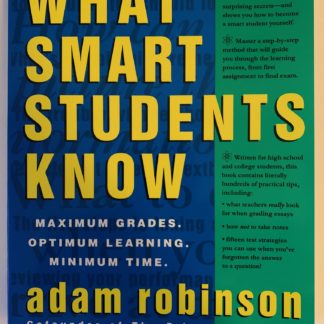Immiscibility describes the chemical inability of oil to combine with water.
This inability exists because while the individual oxygen and hydrogen molecules of water can bind themselves to each other infinitely, they do not connect with the hydrocarbon (hydrogen and carbon) molecules found in oil. Immiscibility also describes my prior unwillingness to accept the version of America described by certain high school historians and college political scientists. To defend a purist view of history, they would often offer the life and works of Thomas Jefferson. Ironically, Jefferson also has something to offer those seeking a more comprehensive historical view.

Floating together inside my mind back then had been two primary ways of seeing the world. In the one presented by traditional historians, America was a beacon of freedom and morality as evidenced by its intellectual, religious, and political elements. Additionally, the founders who synthesized those elements and wrote the constitution were considered to be above reproach. Thomas Jefferson understood this view well. In an 1816 letter to “Henry Tompkinson” (Samuel Kercheval) he wrote:
“Some men look at the constitutions with sanctimonious reverence and deem them, like the ark of the covenant, too sacred to be touched. They ascribe to the men of the preceding age a wisdom more than human, and suppose what they did to be beyond amendment. I knew that age well: I belonged to it, and labored with it.”
In the one I experienced, America was in perpetual conflict over moral contradictions. Against the backdrop of legal phrases in our founding documents like “unalienable rights, equal protection, and the right to vote shall not be abridged”, I lived in a rapidly segregating neighborhood; hearing racial epithets shouted my way wasn’t uncommon; and community advocacy for voting rights was rewarded with jail and “unreasonable searches” for ballots.
These apparent contradictions set up an existential question– “will I become part of the force of moral hypocrisy if I accept traditional versions of history?” Thus, I couldn’t get past the colonial period without considering: a) the role that race played in history generally; and b) why it seemed that our founding documents didn’t account for the lack of legal protections African Americans still experienced. Yet, back then, I failed to articulate the questions I needed to ask to probe deeper, nor would I have had the confidence to challenge historical convention.
If I could save my past self with present knowledge, I would have begun by explaining (to myself) the epistemic limitations of an 11th grade history book. With that acknowledgment, I would have been better able to contemplate “American Exceptionalism” in a hypothetical sense without feeling like I had “given in”. I would have been able to give back more of what was required of me in examination.
However, another approach would have been to learn tactics of critical thinking. There is debate in academia as to what exactly “critical thinking” means, but the link supplied above shares good examples. Those tactics would have helped me interrogate history. Taking a critical approach would then offer a new justification for learning their purist version of it, namely to see how each proposed fact held up to new information and perspectives. Jefferson would have also understood this approach. In 1815, he wrote this in his draft letter to Peter H. Wendover.
“Difference of opinion leads to enquiry, and enquiry to truth; and that, I am sure, is the ultimate and sincere object of us both. We both value too much the freedom of opinion sanctioned by our Constitution, not to cherish its exercise even where in opposition to ourselves.”
He also wrote in 1803 to John Randolph,
“I see too many proofs of the imperfection of human reason to entertain wonder or intolerance on any subject.”
In principle Jefferson seems to believe strongly in the value of debate, not for the sake of arguing, but because of the new knowledge that it can yield. A year after he founded the University of Virginia (1819) he wrote,
“Our University will be based on the illimitable freedom of the human mind. For here we are not afraid to follow truth wherever it may lead, nor to tolerate any error so long as reason is left free to combat it.”
I suspect that Jefferson did not have students like me in mind when he founded the university. UVA did not graduate its first African American until 1953. Yet, the principles for which he advocated help build an argument for an expansive kind of education. Moreover, because he foresaw that society would change across generations, he also hoped that institutions would grow sufficiently to accommodate those changes.
An education that:
- expands to incorporate new knowledge;
- exists within a socially evolving institution; and
- cultivates critical thinking,
could resolve what we could perhaps call, “cognitive immiscibility”. Based on this discussion, we could define it as the kind of intellectual turbulence that occurs when students sense that there’s a greater truth than what is being represented, but lack the tools to discover that greater truth and reconcile it with those representations.
And as composed here briefly, a “Jeffersonian” education could be that resolution. It would promote a cognitive process that would function in the way an emulsifier affects oil and water. Emulsifiers separate the individual molecules within each liquid into individual molecules and then prepares them to connect with molecules of the other substance. Analytical/critical thinking breaks up perspectives into their component parts so that one can see how those perspectives relate to each other. More importantly, students who struggled as I did during certain phases of their education can learn how to engage the academic world with even more vigor, excel at history, and still retain their cultural identities.


Insightful as always Arnold!